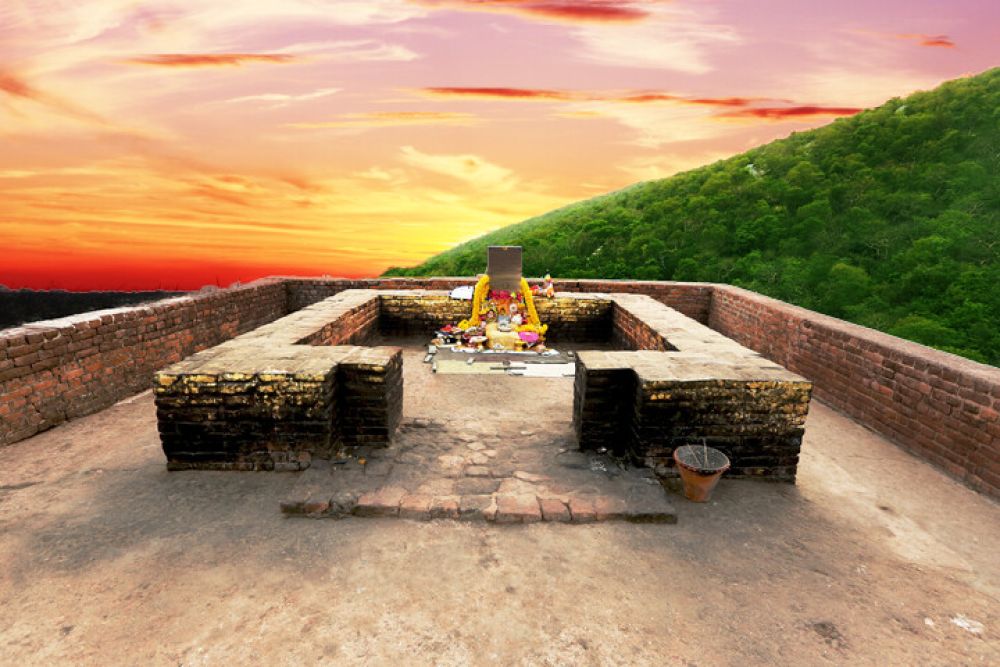

Griddhakuta Hill, also known as Vulture's Peak, is one of the most prominent sites in Rajgir, Bihar, India. The hill holds immense historical and religious significance as it is closely associated with the life of Lord Buddha. Surrounded by lush greenery, this serene peak has been a major pilgrimage site for Buddhists from around the world.
The history of tourism at Griddhakuta Hill can be traced back to the time of the Buddha, around the 5th century BCE. It was here that Buddha is believed to have spent several rainy seasons meditating and preaching to his disciples. The peak became a spiritual hub, attracting followers who wished to hear his teachings. Over time, the footprint of Buddhism carved into the landscapes of Rajgir and elevated the status of Griddhakuta Hill as a revered destination.
With the rise of Buddhism as a major world religion, the importance of Griddhakuta Hill grew. Monks and nuns, as well as lay devotees, continued to visit the region on pilgrimage, leading to the area's development. By the time of the Mauryan king Ashoka in the 3rd century BCE, who was a fervent promoter of Buddhism, Rajgir had established itself as a significant place of worship and sermon. Ashoka's influence further contributed to the establishment of various stupas and monuments enhancing the appeal of Griddhakuta Hill and the surrounding area as a tourist site.
In recent years, with the revival of interest in Buddhist heritage, Rajgir and Griddhakuta Hill have seen significant growth in tourism. The government and local bodies have invested in improving infrastructure, such as better roads, accommodations, and facilities for visitors to cater to the needs of international and domestic tourists.
Eco-Tourism: There is an increasing emphasis on eco-tourism, with efforts to maintain the pristine nature of Griddhakuta Hill while accommodating tourists.
Heritage Tourism: People are increasingly interested in exploring the rich cultural and historical heritage of the area, with Griddhakuta Hill being a focal point.
Spiritual Tourism: The hill continues to draw those seeking spiritual enrichment and meditation retreats, echoing the ancient traditions of Buddhist practice.
Technology and Accessibility: Technological advancements like virtual tours and online information portals have made it easier for tourists to plan their visit. Cable car services also improve mobility for visitors to reach the peak conveniently.
The future of tourism in Rajgir, and specifically at Griddhakuta Hill, seems bright. The increased global interest in Buddhism and the significance of the site in the religion's history ensure continued relevance. Preservation efforts and sustainable tourism practices promise to keep Griddhakuta Hill a cherished destination for generations to come.